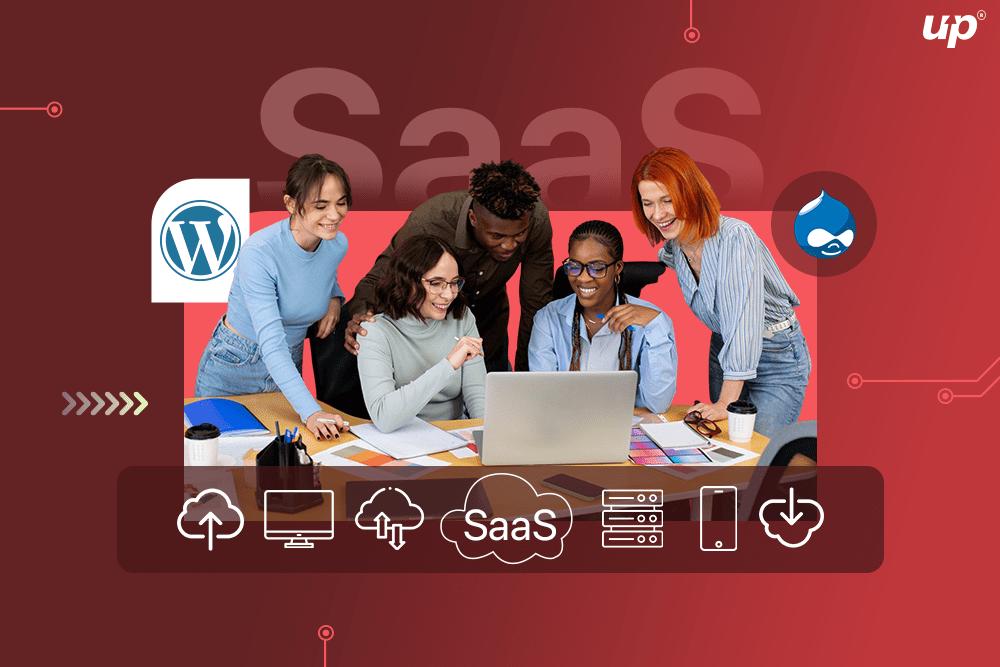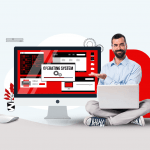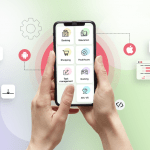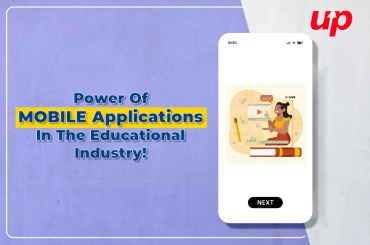The Software as a Service (SaaS) sector appears to have enormous development potential. By 2027, its estimated reach will be $571.9 billion. SaaS, which is quickly becoming a dominant force in cloud computing, offers a revolutionary paradigm in which apps are hosted online and effortlessly distributed to users. SaaS is distinguished by its subscription-based business model, which frees businesses and users from the limitations of installing software locally.
The importance of Android App Development Company extends much beyond practicality. It is the driving force behind the global transition to remote work because of its flexibility and scalability. SaaS solution providers relieve users of these worries by taking on the responsibility of guaranteeing regular maintenance and timely upgrades. These unique qualities have propelled SaaS to prominence among businesses globally, spurring innovation and opening up new levels of productivity.
Software as a Service
SaaS stands for software as a cloud computing system. Customers can use the Internet to access software programs thanks to it. The service provider carefully manages and updates the software under this arrangement, which is housed on remote servers.
Customers can access SaaS through APIs, mobile apps, web browsers and iOS App Development Company, which reduces the need for significant infrastructure investments. Rather, they go with a straightforward monthly subscription, which is essentially software rental based on business requirements. To provide a consistent user experience, the provider’s data centre oversees all underlying components, including middleware, application software, infrastructure, and data.
A Few Saas Characteristics in Cloud Computing Are: Multi-tenancy model: In SaaS, a single software instance serves several clients or tenants. One of the most crucial SaaS features in cloud computing is this. Application components are subject to tenant customization, and data storage is frequently divided into several databases or schemas for each tenant.
Provisioning That Is Automated: SaaS provides provisioning that is automated, allowing customers to use applications right away. Onboarding and offboarding can be made easier by using Android Game App Development Services to establish and grant access to user profiles.
Improved User Cooperation: One noteworthy aspect of SaaS is its capacity to promote better user collaboration. SaaS systems provide integrated capabilities for collaboration and communication like as file sharing, video conferencing, and chat. Furthermore, SaaS promotes teamwork by allowing workers to work from any location at any time.
Elastic infrastructure: SaaS apps use elastic infrastructure to adjust to different use levels. As a result, resources can grow or contract as needed to maintain maximum effectiveness and economy. Kubernetes and Docker are two popular technologies for managing elasticity.
Data security is a key component of App Development Company services since it guards against data corruption and unauthorised access. They frequently store data using encryption, isolating tenant data from unrelated data.
SaaS: Benefits and Drawbacks
Additionally, SaaS has a unique set of benefits and drawbacks, which are detailed below:
SaaS companies frequently provide free trial periods. This makes it possible for prospective users to thoroughly test the software. Free trials, therefore, lower the risk for clients and increase their propensity to investigate and contemplate SaaS solutions.
Reduced Costs: SaaS uses shared infrastructure and software to function in shared environments with multiple users. This shared approach significantly reduces expenses as compared to traditional software models where each business must buy its own equipment and software licences. Small and medium-sized businesses benefit greatly from SaaS’s cost-effectiveness and Android App Development Company as it eliminates the high upfront costs associated with software licensing.
Scalability: SaaS systems are made to grow with ease. You can easily and swiftly add more users or resources as your company expands. Businesses may adjust to shifting demands thanks to SaaS’s scalability without having to make large infrastructure investments or complex configurations.
Updates all the time: SaaS companies maintain their software current. These adjustments may take place weekly or every few months. Through constant enhancement, the programme is kept up-to-date, secure, and equipped with the newest features.
Enhanced data security: SaaS organisations place a high priority on data security. To safeguard customer data, security experts employ robust security techniques like multi-factor authentication. Data is often stored on secure cloud servers, which provide high-security levels and allow access from several devices.
24/7 support: SaaS solutions offer round-the-clock client assistance. Additionally, SaaS providers have a group of experts on staff who are available to assist with troubleshooting, training, and other matters as needed.
The drawbacks of SaaS: Compliance issues: It may be difficult to abide by government data protection laws if vital company data is stored in a service provider’s data centre. Businesses need to follow these guidelines, get relevant information from their service suppliers, and resolve any discrepancies in compliance.
Difficult data mobility: SaaS startups may not have much expertise, which makes data transfer challenging when transferring providers or in the event of a service provider failure.
Internet dependence: SaaS apps need to be connected to the Internet to work properly. Service failures or interruptions can cause operational disruptions for businesses, resulting in missed deadlines and decreased output. iOS App Development Company can solve these problems that are made worse by slow internet connections, which make it harder for staff members to complete work.
Difficulty in integrating software: It can be difficult to integrate third-party SaaS apps with internal software that is already in place. It is important to conduct compatibility tests to guarantee a seamless integration because internal data structures and APIs could not match exactly with third-party software.
The development of integration capabilities by App Development Company is one prominent trend in SaaS. SaaS lacked integration tools in the past. Users were forced to use third-party solutions as a result, which created difficulties with data movement. Modern SaaS providers, on the other hand, eventually provide strong integration capabilities, drawing in companies looking for hybrid systems that combine cloud and on-premises components.
Final Takeaway
The technology underpinning cloud computing is software-as-a-service. In the digital age, it is a game-changer for many businesses since it is adaptable, simple to use, and scalable. SaaS is essential for continued success in cloud computing and Android Game App Development Services since it is always developing with cutting-edge technologies.
For a professional advantage, computer enthusiasts should think about enrolling in a cloud computing course that uses resources like Microsoft Azure, DynamoDB, GCP, and Cloudtrail. Enrol now to maintain your relevance and demand among employers.












